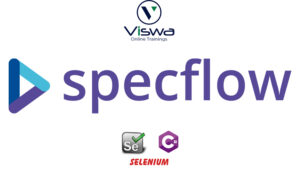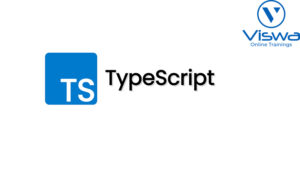Mulesoft (Mule-4) Certification Training
Viswa Online Trainings is one of the world’s leading online IT training providers. We deliver a comprehensive catalog of courses and online training for freshers and working professionals to help them achieve their career goals and experience our best services.
Learners : 1080
Duration : 30 Days
About Course
Anyone working on an Anypoint Platform project who wants to learn more about the platform and how to use it to find, create, build, deploy, manage, and govern APIs should take our introduction to MuleSoft course. In this course, there will be no coding by the students. Enrol today to earn your certification.
Mulesoft (Mule-4) Training Course Syllabus
✔ What is Mule
✔ What is a Flow
✔ Event Processors
✔ MuleEvent Basics
✔ Anypoint Studio
✔ Data and Messages
✔ Mule Debugger
✔ Attributes
✔ Message Variables
✔ Types of Flows
✔ Connecting Flows using Flow-ref
✔ Connecting Flows using HTTP endpoint
✔ Global Elements
✔ VM component
✔ Message Exchange Patterns
✔ Apache Maven
✔ Creating Mule Domain Project
✔ configuring Mule application to Domain
✔ Property configuration using YAML
✔ Configuring Database connectivity
✔ Accessing and Interacting with Databases
✔ Executing Stored Procedures
✔ Deno on insert and Bulk Insert
✔ Invoking SOAP web service
✔ Dataweave Basics
✔ Design and develop a flow interacting with SOAP and REST ✔ endpoints
✔ Dataweave Advanced
✔ Merging payloads of Multiple services
✔ condition-based weaving
✔ Real-Time Scenarios:
✔ WebService to DB
✔ CSV to DB etc
✔ Choice Router
✔ Scatter-Gather Router
✔ Configuring JMS
✔ Interaction with JMS queues
✔ Mule-4 Error types
✔ Default error handling
✔ Catching errors
✔ Error Handler scopes
✔ Global error handler
✔ Reuable error handler
✔ Try Scope
✔ RAML Designing and Implementation in Anypoint studio
✔ Types, Resource Types, and Traits
✔ API development, Experience, Process, and System API concepts
✔ Batch Processing
✔ Batch Processing implementation scenarios
✔ Handling errors
✔ Application Properties
✔ Mule ESB Deployments
✔ Cloud Hub Deployments
✔ Munit and Munit Tools modules
✔ Assert that operation
✔ Mocking the external source
✔ VerifyCall of event processor
✔ Spying event processor
| Live Instructor Based Training With Software |
| Lifetime access and 24×7 support |
| Certification Oriented content |
| Hands-On complete Real-time training |
| Get a certificate on course completion |
| Flexible Schedules |
| Live Recorded Videos Access |
| Study Material Provided |
Mulesoft (Mule-4) Training - Upcoming Batches
7th NOV 2022
8 AM IST
Coming Soon
AM IST
5th NOV 2022
8 AM IST
Coming Soon
AM IST
Don't find suitable time ?
CHOOSE YOUR OWN COMFORTABLE LEARNING EXPERIENCE
Live Virtual Training
-
Schedule your sessions at your comfortable timings.
-
Instructor-led training, Real-time projects
-
Certification Guidance.
Self-Paced Learning
-
Complete set of live-online training sessions recorded videos.
-
Learn technology at your own pace.
-
Get access for lifetime.
Corporate Training
-
Learn As A Full Day Schedule With Discussions, Exercises,
-
Practical Use Cases
-
Design Your Own Syllabus Based
Mulesoft (Mule-4) Online Training FAQ'S
Mule is an open-source platform for enterprise integration that aids in solving the issues with creating integration apps. Mule addresses issues with handling errors, monitoring, lifecycle management, data format, and other issues. Mule may now concentrate on the application’s fundamental needs, such as scalability and efficiency, as these issues have been resolved.
MuleSoft helps in the task of data integration diligently and efficiently. The tools and services offered by MuleSoft include:
- API Designer: API Designer is a web-based tool that contains a console and a scripting notebook for JavaScript.
- API Manager: API Manager is a management tool that allows organizations in managing users, traffic, and service level agreements.
- Anypoint Studio: Anypoint Studio is a graphical design environment to build and edit APIs and integrations.
- API Portal: This is a portal that offers developers different kinds of documents, tutorials, and code snippets related to APIs.
- API Analytics: API Analytics is an analytics tool that allows a user to track the specifications of an API. This also includes its performance, usage, and reliability. Additionally, it offers a dashboard and charts.
Get ahead in your career by learning Mulesoft through VISWA Online Trainings
Mule ESB stands for Mule Enterprise Service Bus. Mule ESB makes it easy for the development teams to flexibly connect, access, and exchange data easily. This means that even though the application is running into different VMs, the interactions between them are easy.
Following are some of the features of Mule ESB:
- Message Transformation Service
- Set of Service Container
- Web Service Security
- Message Routing Service
- Simple drag-and-drop graphical design
- Centralized monitoring and administration
A batch task in Mule ESB is a component of a mule that divides large messages into records. Then, in a batch job, these records are handled asynchronously.
One can start a batch job scope within an application, which separates messages into individual records, executes operations on each record, reports on the outcomes, and may push the processed output to further systems or queues. With this, a legacy system may handle significant amounts of incoming data through an API. Data sets can be synchronized between business apps as well.
The different types of variables in MuleSoft are as follows:
- Flow Variable: This is used to either set or remove variables that are tied to a particular message in the current flow.
Syntax: #[flowVars.Code] - Record Variable: This is used for the batch processing flows. Unlike any other variable, these are special variable sets that are used only inside a Batch Job.
Syntax: #[recordVars.Code] - Session Variable: This is used to either set or remove variables tied to a particular message for the entire lifecycle.
Syntax: #[sessionVars.Code]
Reviews
 Vishnu Gadipudi2023-08-20I Enrolled in VISWA Online Trainings for IBM Integration BUS course . Recently I Completed IBM Integration BUS Batch. It was Really Awesome Experience. Best Place To Learn , Experienced Trainer, Gives Us High Level Knowledge....
Vishnu Gadipudi2023-08-20I Enrolled in VISWA Online Trainings for IBM Integration BUS course . Recently I Completed IBM Integration BUS Batch. It was Really Awesome Experience. Best Place To Learn , Experienced Trainer, Gives Us High Level Knowledge.... Navya Biradavolu2023-08-20I was enrolled for looker Bl Tool,it was amazing experience . especially soft skill batch is one of my favourite batch . overall learning process is quite impressive.
Navya Biradavolu2023-08-20I was enrolled for looker Bl Tool,it was amazing experience . especially soft skill batch is one of my favourite batch . overall learning process is quite impressive. Indla sneha2023-08-20I have joined I have joined VISWA Online TRAININGS for Java full stack course and i have completed Advance Java module. I had a good knowledge of Hibernate, spring,spring boot,spring MVC. Tutor has knowledge in depth and is supportive. Srinadh sir solved all our doubts....
Indla sneha2023-08-20I have joined I have joined VISWA Online TRAININGS for Java full stack course and i have completed Advance Java module. I had a good knowledge of Hibernate, spring,spring boot,spring MVC. Tutor has knowledge in depth and is supportive. Srinadh sir solved all our doubts.... bindu hima2023-08-20I am recently completed Talend course and trainer is Rajendra very professional and helpful. All the doubts were solved in a precise manner.
bindu hima2023-08-20I am recently completed Talend course and trainer is Rajendra very professional and helpful. All the doubts were solved in a precise manner. Tarunasree Gowra2023-08-20"I truly enjoyed this course." Chaitanya sir fantastic-very knowledgeable. Sir give us very informative and clear instruction on how to achieve the goal. Thank you!
Tarunasree Gowra2023-08-20"I truly enjoyed this course." Chaitanya sir fantastic-very knowledgeable. Sir give us very informative and clear instruction on how to achieve the goal. Thank you! Tejaswini Kommu2023-08-20Overall Linux Admin sessions batch was very good. Mr. RAM Krishna teaching was very helpful to remind our basic concepts in linux & networking.
Tejaswini Kommu2023-08-20Overall Linux Admin sessions batch was very good. Mr. RAM Krishna teaching was very helpful to remind our basic concepts in linux & networking. Gopanaboina Mounika2023-08-20It was great learning with such a great and experienced staff. Praveen Sir (Oracle EPM Cloud - FCCS) was very helpful and operations team also very helpful in solving any minor problems students go through process.
Gopanaboina Mounika2023-08-20It was great learning with such a great and experienced staff. Praveen Sir (Oracle EPM Cloud - FCCS) was very helpful and operations team also very helpful in solving any minor problems students go through process. Jyothi Gutlapalli2023-08-20I like to share my experience which provide lots of courses and one of those I recently completed my Salesforce BA Course and I like to tell you it was a great experience and my knowledge and confidence is really boosted after completing this course.
Jyothi Gutlapalli2023-08-20I like to share my experience which provide lots of courses and one of those I recently completed my Salesforce BA Course and I like to tell you it was a great experience and my knowledge and confidence is really boosted after completing this course. Harshibandi2023-08-20Good experience and great learning platform for Hyperion Essbase and Planning. The faculty is also well trained and soft spoken.
Harshibandi2023-08-20Good experience and great learning platform for Hyperion Essbase and Planning. The faculty is also well trained and soft spoken. Chaitu Viswa2023-08-20It was very good session for QlikView. I would like to thank to teacher Mr.Chandu for providing guidance for the required modules. Thanks VISWA Team for giving apportunity to leran new skills.
Chaitu Viswa2023-08-20It was very good session for QlikView. I would like to thank to teacher Mr.Chandu for providing guidance for the required modules. Thanks VISWA Team for giving apportunity to leran new skills.




